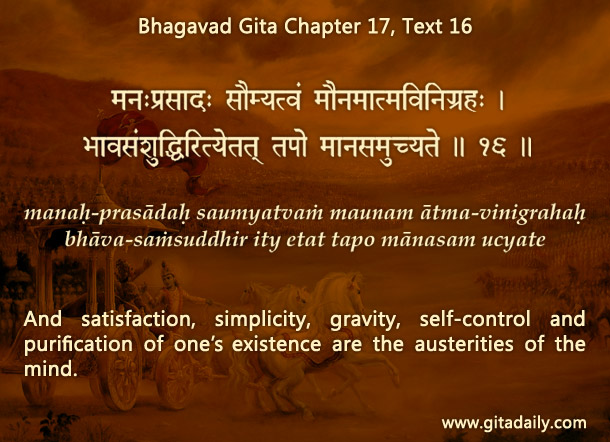Sometimes, life puts us in so many difficulties that we feel utterly powerless. That feeling can drown us in despair, self-pity, resentment and even suicidal thoughts. And it can prevent us from doing things that are still within our power to do.
To dissipate such negativity, we can ask ourselves a counter-intuitive question: “No matter how bad things are, can I make them worse?”
Our first reaction would be: “Who would want to make things worse?” The point here is not to make things worse, but to challenge our feeling of powerlessness. No situation can be so disempowering as to take away our power to make things worse. If a knee fracture has immobilized us, we can still take a hammer and fracture our other knee. Obviously, we won’t, and we shouldn’t.
But this thought-exercise underscores that we are not as powerless as we imagine; if we can make things worse, we can make them better too. Even if we can’t change a single thing externally, we can still change our disposition internally. Instead of complaining about how bad things are, we can be grateful they aren’t worse. Instead of feeling sorry for ourselves, we can start taking responsibility for making things better. Pertinently, the Bhagavad-gita (17.16) urges us to discipline our mind by choosing satisfying thoughts.
For those who resolve to be responsible, not resentful, Gita wisdom reveals a wealth of spiritual resources. Specifically, the process of bhakti-yoga helps us realize that we are, at our core, indestructible and are protected by a loving God whose purposes, even if sometimes inscrutable, are always benevolent.
When we thus spiritualize our inner world, we get the calmness, clarity and creativity to improvise in our outer world and find positive options where none seemed to exist.
Think it over:
- What counter-intuitive question can dissipate the illusion that we are powerless?
- Even if we can’t change anything externally, what can we still do?
- Do you feel powerless in some area of your life? How can you change that perception?
***
17.16: And satisfaction, simplicity, gravity, self-control and purification of one’s existence are the austerities of the mind.

To know more about this verse, please click on the image
Explanation of article:
Podcast:

Hare Krishna Dandavat !
Sharing my experience . The topic/ content of Gita daily almost matches to my questions .Today also I was sitting very tense , perplexed and this mail came .. Serves as good motivation ..
Thanks for sharing your experience – am grateful to be of service.
Really nice article…..so much practical and helpful.
Happy to be of service.